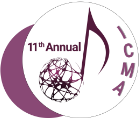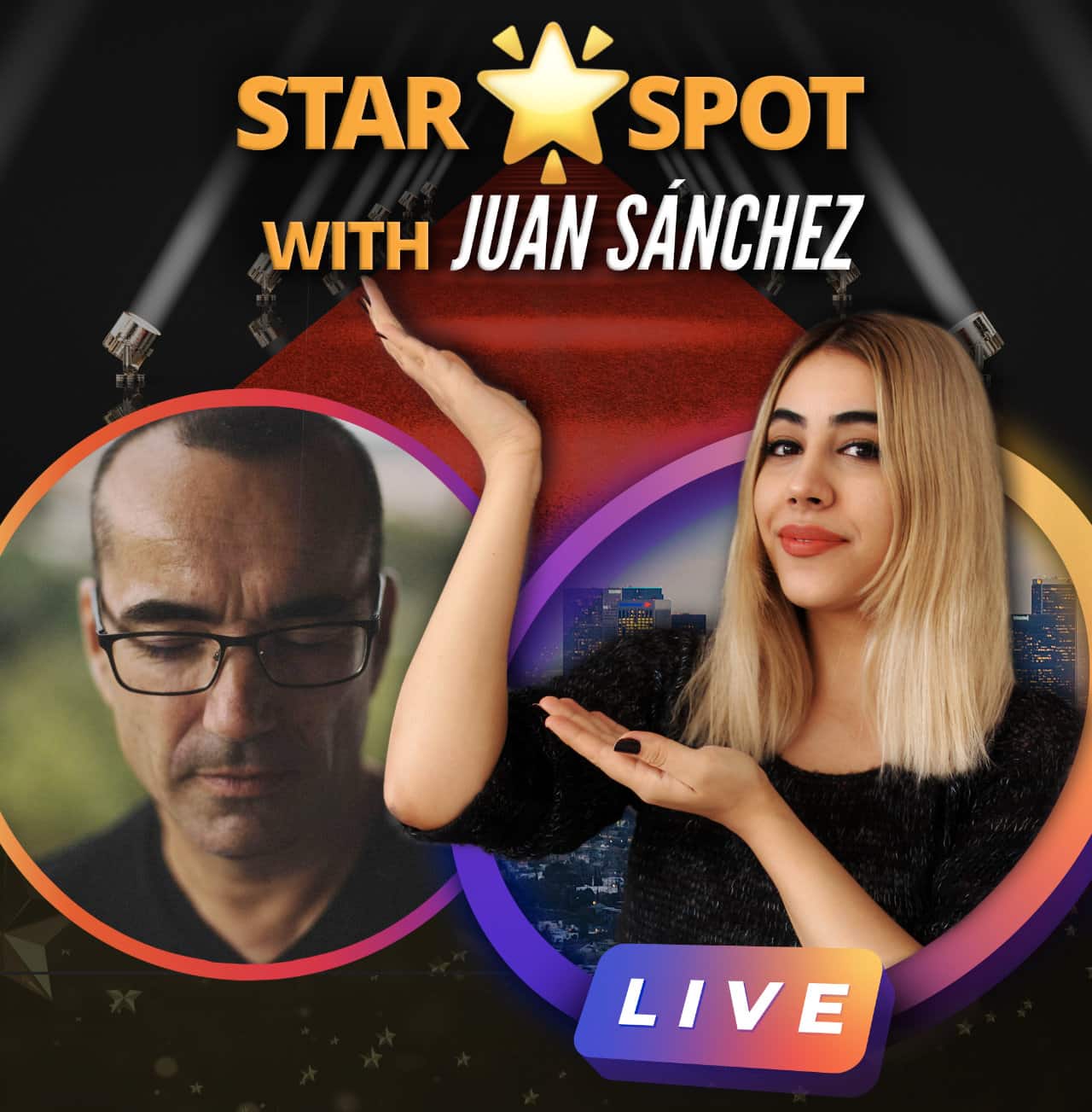Star Spot with Juan Sánchez, composer, and pianist based in Barcelona
Insights and Advice from Juan Sánchez: A Candid Conversation on Originality, Consistency, and Music Business
Welcome to this episode of Star Spot! I’m Merry, and in this series, I interview InterContinental Music Awards winners and insiders, bringing you exclusive insights into the music industry. Today, I’m thrilled to have with me Juan Sánchez, our brilliant winner of 2022.
Juan Sánchez, a talented composer, and pianist based in Barcelona, Spain. As the winner of the InterContinental Music Awards, Juan’s unique approach to blending classical and electronic music has garnered international recognition. In this interview, we dive into Juan’s background, his journey into music, and how discovering Max Richter and Ludovico Einaudi changed his life forever.
From performing with live bands in London to creating ambient instrumental electronic music, Juan’s experience and passion for music have led him to produce awe-inspiring pieces for multimedia and sound libraries. Join us as we explore Juan’s success in the music competition industry and learn more about his creative process.
Let’s dive right into the interview summary and tap into Juan Sánchez vast knowledge and experience. The full interview is available on Instagram – click here to check it out.
Can you tell us a little bit about yourself and your background?
Sure! I am a composer and pianist based in Barcelona, Spain. I started playing piano when I was just 14 years old and studied it for five years. When I turned 25, I went to London to study music technology, sound engineering, and sound design. After living in London for five years, I started working as a sound designer for some companies until 2006, when I founded my own company and started selling my own songs.
I’ve also composed music for documentaries and short films. For the past four years, I have been focusing on creating piano music and releasing my own records as an independent musician. And this year, I’ve started playing live shows in Spain, especially in my hometown of Barcelona.
What first inspired you to get into music?
I was inspired by many different artists and musicians when I was young. One of the first that really captured my attention was Supertramp, which made me want to learn to play the piano. Other artists like Billy Joel and Elton John also had a big influence on me. I was inspired by lots of different things that led me to become a musician.
You describe your music as “ambient piano music.” Could you explain what that means?
Sure! When I was creating music for documentaries and short films, I was creating ambient music, which is atmospheric and creates a mood or feeling. When I started experimenting with the piano and other effects, I found that processing the sound with reverb and delay made it more interesting to me than the dry sound you typically hear on classical piano recordings. I released my first album, “Rebirth,” about three and a half years ago, and people liked it because it combined ambient music with a little bit of minimal New Age piano music. So, I call my music “ambient piano music.”
How do you begin working on a new piece of music?
I always start by going to the piano and improvising until I find something that I like. Once I have a good idea, I develop it into a composition. I use different digital pianos and keyboards in my studio, but I always go to a professional studio to record the piano on an acoustic grand piano. After recording, I process the sound by adding reverbs and delays, and I experiment with different techniques. Sometimes, I collaborate with other musicians like cello players or violin players, and we do everything online. The whole process usually takes about one week.
How long does the music creation process usually take for you?
It depends on the type of music and the feeling and inspiration behind it. Usually, I compose one or two pieces every month, but I do not release all of them. I release one piece every two months and use the time in between to promote the piece that was just released. While waiting, I continue to create, and I have my iPhone full of ideas. I usually record them on the fly with my iPhone. I compose about two pieces per month, but I only release one every two months. Once I have an idea for a piece, finish the composition on the piano, and record everything in the studio, it takes about a week to complete.
How was your experience with the InterContinental Music Awards, and what was your takeaway?
My experience with the InterContinental Music Awards was great. I was impressed when I received the award, and I have since learned a lot from the mentorship of their online course. The course taught me how to promote my music and find contacts to license my music. I also participated in live video conferences with high-profile musicians, which was great since they shared valuable insights I did not know before.
So am happy to be part of the InterContinental Music Awards family and impressed with the level of professionalism from everyone involved. Learned a lot, and it is fantastic to be among many talented musicians. I heard about the awards from a music publicist, and I recommend it to anyone looking for recognition in the music industry.
What has been the biggest challenge you faced in your career?
In the beginning of my career, my biggest challenge was figuring out how to become a composer since I was born and raised in Spain, where there was no industry for instrumental composers like me. I did not have a mentor or anyone in my family who was a musician to provide guidance, which made it even more difficult. So, at 25, I decided to move to London to learn about the music business, computer music, and make contacts. However, I had to start from scratch and work in restaurants, washing dishes to survive.
I also struggled with speaking English, which made it even harder for me. Eventually, I found a music publisher, and things started falling into place. Another challenge I faced was overcoming my shyness, which made it difficult for me to perform live. But now, I have started playing music live again after 22 years and enjoying it a lot.
What advice did you receive in your music career?
In the beginning, I didn’t have any advice because I didn’t have any mentorship or any mentor. I was doing things on my own, trying and failing lots of times. But when I was 32-33, I started working with a music publisher who gave me some advice. Now things are different, and you can get online courses, buy books, and book mentorships.
If someone wants to become a professional composer, the first piece of advice I would give is to be yourself and create the music you want to create, not the music you think you have to create. Originality is the key, and consistency is essential because, in the beginning, you will make lots of mistakes. I would also advise studying and being up-to-date with all the industry changes, learning about music promotion, the music business, and finding teachers to learn from.
Any last words you would like to share?
First of all, I would like to express my gratitude for receiving this award. It makes me happy and motivates me to keep pushing forward in my music career. Secondly, I want to thank the interviewer for providing me with some valuable tools that have helped me learn a lot. Lastly, I appreciate this opportunity to share my experiences and advice with others who are also pursuing their music dreams. Thank you for this interview.
Juan Sánchez Contact Info:
- Website: https://juansanchezmusic.info
- Instagram: https://www.instagram.com/juansanchezpiano/
- Spotify: https://open.spotify.com/artist/7hWXE61toZRP69BB1bQgDe
Click here to watch Juan Sánchez ‘s full interview on Instagram
InterContinental Music Awards Team


